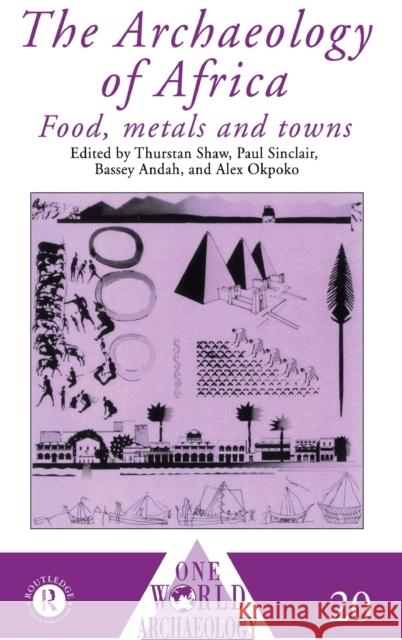The Archaeology of Africa : Food, Metals and Towns » książka
The Archaeology of Africa : Food, Metals and Towns
ISBN-13: 9780415084444 / Angielski / Twarda / 1993 / 896 str.
A considerable proportion of the authors of this book are either Africans or live in Africa, and all of them carry out fieldwork there. Its size and coverage allows not only a wide overview of development in Africa from around 8000 BC to the present-day, but also some review chapters and in-depth studies. Contrary to common perception, it is intended that Africa's past should emerge as anything but a vast barren area, open to all extraneous influence, and eager to welcome incoming innovations and colonizers in order to be pushed into some kind of development. Instead, the book aims to show that the continent emerges as the possessor of a complex interweaving of peoples and cultures, practising a diversity of economic and social strategies in a number of environmental situations. In some areas, hunting and gathering was a successful adaptation, in some, pastoralism, in others, small agricultural communities, and in still others, urbanism. The archaeology of Africa has revealed enough of the continent's unwritten past to confound many preconceptions about it.
Africa has a vibrant past. It emerges from this book as the proud possessor of a vast and highly complicated interweaving of peoples and cultures, practising an enormous diversity of economic and social strategies in an 2xtraordinary range of environmental situations.
At long last the archaeology of Africa has revealed enough of Africa's unwritten past to confound preconceptions about this continent and to upset the picture inferred from historic written records. Without an understanding of its past complexities, it is impossible to grasp Africa's present, let alone its future.











